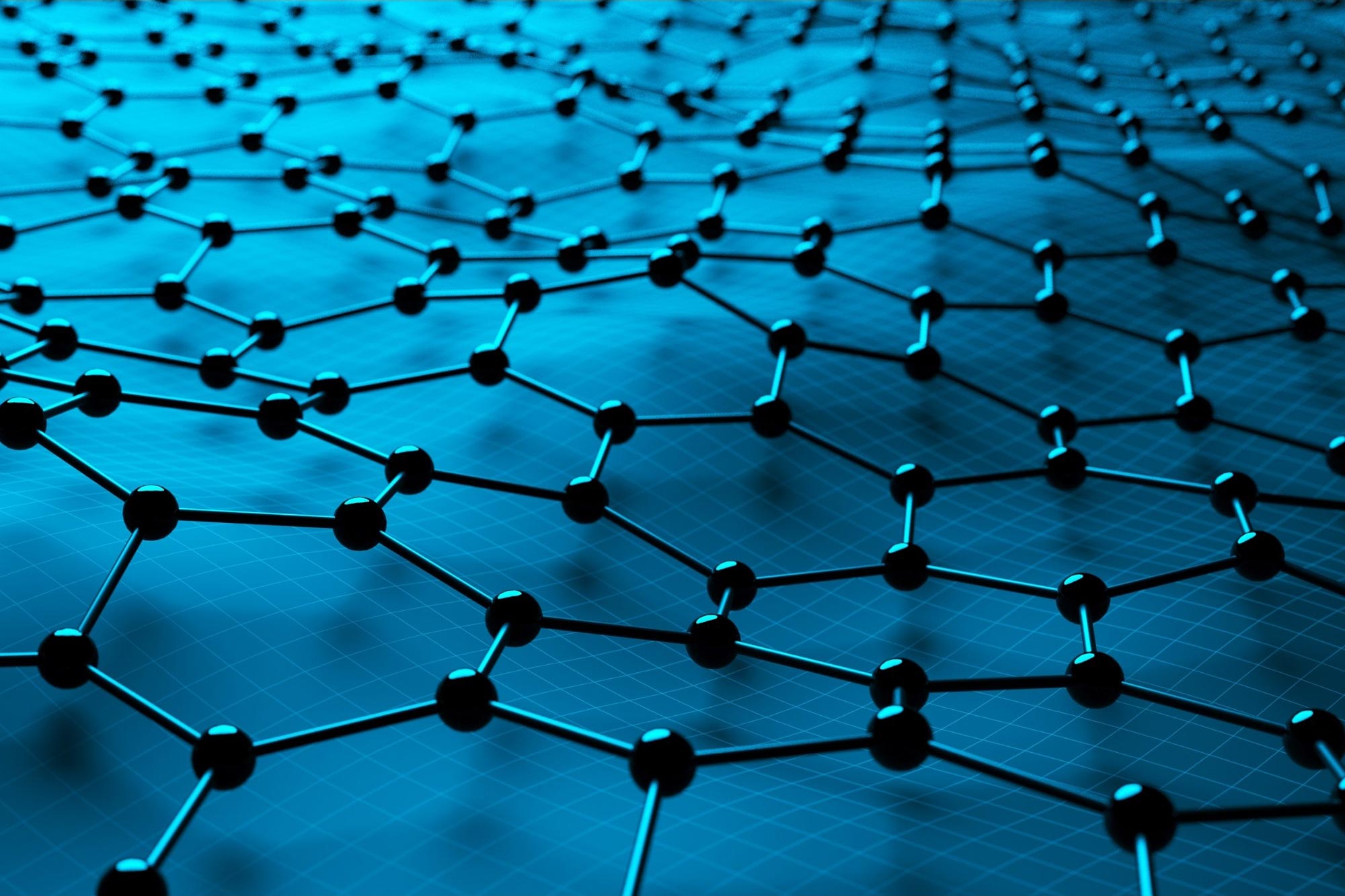
Posted on 03/17/2023 5:11:40 AM PDT by Red Badger

Graphene Sheet
Scientists have found that nanoripples in graphene make it a strong catalyst, even though it was expected to be chemically inert. Their research, published in PNAS, demonstrated that nanoscale corrugations on graphene’s surface accelerate hydrogen splitting as well as the best metallic-based catalysts, and this effect may be present in all 2D materials.
***********************************************************************
A team of researchers led by Prof. Andre Geim from the National Graphene Institute (NGI) have discovered that nanoripples in graphene can make it a strong catalyst, contrary to general expectations that the carbon sheet is as chemically inert as the bulk graphite from which it is obtained.
Published this week in the Proceedings of the National Academy of Sciences (PNAS), the research has shown that graphene with nanoscale corrugations of its surface can accelerate hydrogen splitting as well as the best metallic-based catalysts. This unexpected effect is likely to be present in all two-dimensional materials, which are all inherently non-flat.
The Manchester team in collaboration with researchers from China and USA conducted a series of experiments to show that non-flatness of graphene makes it a strong catalyst. First, using ultrasensitive gas flow measurements and Raman spectroscopy, they demonstrated that graphene’s nanoscale corrugations were linked to its chemical reactivity with molecular hydrogen (H2) and that the activation energy for its dissociation into atomic hydrogen (H) was relatively small.
 Rippled graphene with dissociated hydrogen atoms on top. Credit: University of Manchester
Rippled graphene with dissociated hydrogen atoms on top. Credit: University of Manchester
*********************************************************************************
The team evaluated whether this reactivity is enough to make the material an efficient catalyst. To this end, the researchers used a mixture of hydrogen and deuterium (D2) gases and found that graphene indeed behaved as a powerful catalyst, converting H2 and D2 into HD. This was in stark contrast to the behavior of graphite and other carbon-based materials under the same conditions. The gas analyses revealed that the amount of HD generated by monolayer graphene was approximately the same as for the known hydrogen catalysts, such as zirconia, magnesium oxide, and copper, but graphene was required only in tiny quantities, less than 100 times of the latter catalysts.
“Our paper shows that freestanding graphene is quite different from both graphite and atomically flat graphene that are chemically extremely inert. We have also proved that nanoscale corrugations are more important for catalysis than the ‘usual suspects’ such as vacancies, edges, and other defects on graphene’s surface,” said Dr. Pengzhan Sun, first author of the paper.
Lead author of the paper Prof. Geim added, “As nanorippling naturally occurs in all atomically thin crystals, because of thermal fluctuations and unavoidable local mechanical strain, other 2D materials may also show similarly enhanced reactivity. As for graphene, we can certainly expect it to be catalytically and chemically active in other reactions, not only those involving hydrogen.”
“2D materials are most often perceived as atomically flat sheets, and effects caused by unavoidable nanoscale corrugations have so far been overlooked. Our work shows that those effects can be dramatic, which has important implications for the use of 2D materials. For example, bulk molybdenum sulfide and other chalcogenides are often employed as 3D catalysts. Now we should wonder if they could be even more active in their 2D form.”
Reference:
“Unexpected catalytic activity of nanorippled graphene” by P. Z. Sun, W. Q. Xiong, A. Bera, I. Timokhin, Z. F. Wu, A. Mishchenko, M. C. Sellers, B. L. Liu, H. M. Cheng, E. Janzen, J. H. Edgar, I. V. Grigorieva, S. J. Yuan and A. K. Geim, 13 March 2023, Proceedings of the National Academy of Sciences.
DOI: 10.1073/pnas.2300481120
Graphene Ping!...................
“Unexpected Effect: Nanorippled Graphene Becomes a Powerful Catalyst”
I was wondering when they would admit that. Now, perhaps, they’ll watch some of the Jan 6th videos.
Maybe that’s why it’s reported to have been included in the vax. For its catalytic properties.
Supercharge your mRNA!
Is this because of the increased surface area?
Has graphene ever been utilized commercially. I keep reading here it is the most wonderful product, but I have never heard of it being utilized.
Has graphene ever been utilized commercially. I keep reading here it is the most wonderful product, but I have never heard of it being utilized.
It always bothers me when they call these sheets “atomically” 2D. They are not 2D, there is a third measurement, even if it is vanishingly small.
Only 30 years away!.......................
Yes, there is a 3rd dimension, but they are called 2D because the electrons orbit the atom’s nucleus and can’t be precisely located at any given moment in time................

This is the graphene ping list.
Click Private Reply below to join or leave this list.
Interesting: 10 Uses for Graphene.
the most impactful use of graphene will be for desalination. Because graphene will allow for room temperature and pressure desalination. That will cut the energy costs of desalination to nearly zero. energy costs are 1/3 of the cost of desalination. but that will be enough to make desalination cheap enough for desert farming. that means that the habitable size of earth will roughly double.

I once worked for Donald Huffman . He was the first man to actually see Fullerenes in bulk. The technique he discovered is still used today to manufacture them.
Disclaimer: Opinions posted on Free Republic are those of the individual posters and do not necessarily represent the opinion of Free Republic or its management. All materials posted herein are protected by copyright law and the exemption for fair use of copyrighted works.